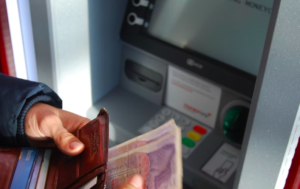Friday 23 September 2022, a day that will live in infamy, was the culmination of changes which will impoverish younger people, argues Angus Hanton, IF Co-founder.

Interest rates up
Most strikingly, interest rates shot up which squeezed borrowers and will be particularly difficult for younger people with mortgages. Younger people will often have taken on debts which were for high proportions of the purchase price – high loan-to-value (LVT) ratios – and required them to pay high proportions of their post-tax incomes for interest payments.
The interest rate increases triggered on 23 September created a short-fuse time bomb which will hit each borrower at the point in the year when their repayments are reset. For those looking to buy their first home it is likely that these higher interest rates will have made a purchase unaffordable even if banks had not withdrawn their mortgage offerings. So younger people will remain as tenants. There is also a serious risk for these young people that their rents will be pushed up by landlords who have more expensive borrowings and who are under financial pressure themselves.
Devaluation of the pound sterling
The other big change on 23 September was the devaluation of the pound sterling. This will make the majority of goods dearer as their cost in sterling has increased because Euros or Dollars became more expensive to buy. The knock-on effect of higher inflation for everyone is a sharp reduction in what can be bought with any disposable income. Another aspect of this is the increase in fuel bills where the capping of the cost of energy feels like a short-term fix to ease the population into longer-term higher energy prices.
Tax cuts are really tax increases
The much-trailed and trumpeted tax cuts, which appeared to be good news on 23 September, turn out to be a mirage when you look at the numbers. Young people will have noticed the small cuts in National Insurance contributions (NICs), which is a tax in all but name, and the one percent reduction in the basic rate of income tax.
However, younger generations are much less likely to have worked out how inflation will speedily erode the value of their Personal Allowances. If inflation halves the real value of money over the next 4 years, the effect of this will be that – in 2022 pounds – the Personal Allowance will be cut to about £6,000 and the level at which earners pay the higher 40% income tax will reduce to about £25,000 (in 2022 equivalent money). The result is that, despite the rhetoric, there will be a real tax increase for young people over the next few years.
Older people will also be hit by some of these changes, so there is a general impoverishment of the population and its origins will be traced back to 2022. But the important thing is that it is hardest on those who have least in the way of savings, who mostly pay rent and who face high taxes on their earned income. That mostly means young people and young families.
Intergenerational fairness
All of the above combine to further reduce intergenerational fairness, rather than the “prosperity for all people and future generations”, promised by the new Prime Minister on the steps of 10 Downing Street when she took office on 3 September 2022. Instead, younger generations will be on the hook once again by subsidising the wealthier old, through higher taxation and inflation, and this is after more than a decade of stagnation and/or decline in younger generations’ prospects. We need a new social contract that invests instead of taking from the young rather than the empty rhetoric promised by the new Prime Minister.
Help us to be able to do more
Now that you’ve reached the end of the article, we want to thank you for being interested in IF’s work standing up for younger and future generations. We’re really proud of what we’ve achieved so far. And with your help we can do much more, so please consider helping to make IF more sustainable. You can do so by following this link: Donate
Photo by Nick Pampoukidis from Unsplash
